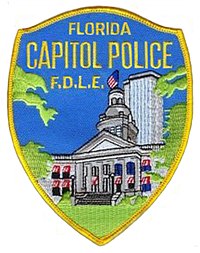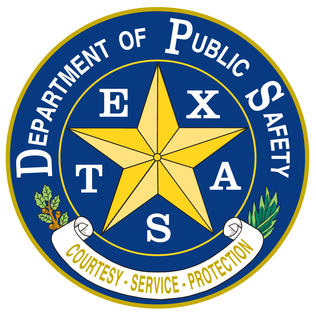
The Department of Public Safety of the State of Texas, commonly known as the Texas Department of Public Safety (DPS), is a department of the state government of Texas. The DPS is responsible for statewide law enforcement and driver license administration. The Public Safety Commission oversees the DPS. However, under state law, the Governor of Texas may assume command of the department during a public disaster, riot, insurrection, formation of a dangerous resistance to enforcement of law, or to perform his constitutional duty to enforce law. The commission's five members are appointed by the governor and confirmed by the Texas Senate, to serve without pay for staggered, six-year terms. The commission formulates plans and policies for enforcing criminal, traffic and safety laws, preventing and detecting crime, apprehending law violators, and educating citizens about laws and public safety.

The Federal Law Enforcement Training Centers serves as an interagency law enforcement training body for 105 United States government federal law enforcement agencies. The stated mission of FLETC is to "...train those who protect our homeland". Through the Rural Policing Institute (RPI) and the Office of State and Local Training, it provides tuition-free and low-cost training to state, local, campus and tribal law enforcement agencies.
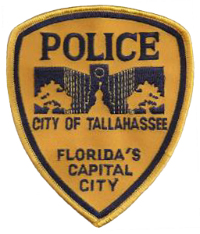
The Tallahassee Police Department (TPD) is the municipal police for that provides public safety services for the city of Tallahassee, Florida, United States. Within the department, there are twelve primary divisions: The Chief of Police, Internal Affairs, Development Bureau, Investigations, Traffic Enforcement, Crime Analysis Unit, Public Information Office, Towing Administration, Property & Evidence, Operations Bureau, Technology, Records, and Special Operations.

The Florida Highway Patrol (FHP) is a division of the Florida Department of Highway Safety and Motor Vehicles. It is Florida's highway patrol and is the primary law enforcement agency charged with investigating traffic crashes and criminal laws on the state's highways.

The Jacksonville Sheriff's Office (JSO) is a joint city-county law enforcement agency, which has primary responsibility for law enforcement, investigation, and corrections within the consolidated City of Jacksonville and Duval County, Florida, United States. Duval County includes the incorporated cities of Jacksonville, Atlantic Beach, Baldwin, Jacksonville Beach, and Neptune Beach; the beach cities have their own police departments as well.

The Maryland State Police (MSP), officially the Maryland Department of State Police (MDSP), is the official state police force of the U.S. state of Maryland. The Maryland State Police is headquartered at 1201 Reisterstown Road in the Pikesville CDP in unincorporated Baltimore County.

As of 2020, more than 800,000 sworn law enforcement officers have been serving in the United States. About 137,000 of those officers work for federal law enforcement agencies.

The Miami-Dade Police Department (MDPD), formerly known as the Dade County Sheriff's Office (1836–1957), Dade County Public Safety Department (1957–1981), and the Metro-Dade Police Department (1981–1997), is a county police department serving Miami-Dade County. The MDPD has approximately 4,700 employees, making it the largest police department in the southeastern United States and the eighth largest in the country. The department is still often referred by its former name, the Metro-Dade Police or simply Metro.

The Oklahoma State Bureau of Investigation (OSBI) is an independent state law enforcement agency of the government of Oklahoma. The OSBI assists the county sheriff offices and city police departments of the state, and is the primary investigative agency of the state government. OSBI works independent of the Oklahoma Department of Public Safety to investigate criminal law violations within the state at the request of statutory authorized requesters. The OSBI was created in 1925 during the term of Governor Martin E. Trapp.
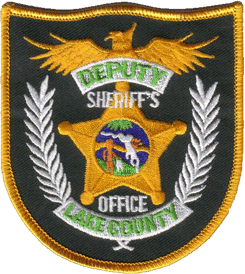
The Lake County Sheriff's Office is the largest law enforcement agency in Lake County, Florida, United States. Per the State of Florida Constitution, the sheriff is the chief law enforcement officer of both the incorporated and unincorporated areas of the county. The current Sheriff is U.S. Marine Corps veteran Peyton C. Grinnell who was elected November, 2016 in the Lake County general election. He succeeds Sheriff Gary Borders, who was appointed by Governor Jeb Bush following the death of Sheriff Chris Daniels in 2006, and was subsequently elected in 2008, and 2012. The agency has been awarded with a certificate of accreditation from the Commission for Florida Law Enforcement Accreditation, consequently, both the Law Enforcement and Corrections divisions of the Lake County Sheriff's Office are now accredited.
The North Carolina State Bureau of Investigation (SBI) is a state-level law enforcement agency in North Carolina.

Steve Oelrich is an American law enforcement officer and former Republican member of the Florida Senate from 2006 to 2012, where he represented the 14th District, which included Alachua, Bradford, Columbia, Gilchrist, Levy, Marion, Putnam, and Union counties.

In the United States, a sheriff is the chief of law enforcement of a county. Sheriffs are usually either elected by the populace or appointed by an elected body.
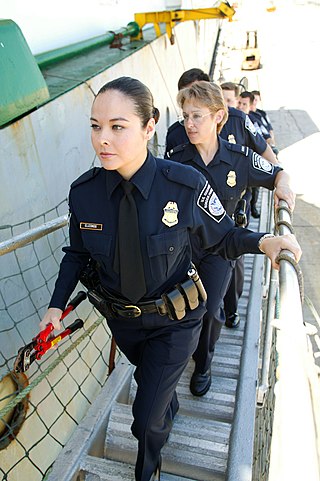
The federal government of the United States empowers a wide range of federal law enforcement agencies to maintain law and public order related to matters affecting the country as a whole.

In the United States, the state police is a police body unique to each U.S. state, having statewide authority to conduct law enforcement activities and criminal investigations. In general, state police officers or highway patrol officers, known as state troopers, perform functions that do not fall within the jurisdiction of a county’s sheriff, such as enforcing traffic laws on state highways and interstates, overseeing security of state capitol complexes, protecting governors, training new officers for local police forces too small to operate an academy and providing technological and scientific services. They also support local police and help to coordinate multi-jurisdictional task force activity in serious or complicated cases in states that grant full police powers statewide.
A law enforcement agency (LEA) is any government agency responsible for law enforcement within a specific jurisdiction through the employment and deployment of law enforcement officers and their resources. The most common type of law enforcement agency is the police, but various other forms exist as well, including agencies that focus on specific legal violation, or are organized and overseen by certain authorities. They typically have various powers and legal rights to allow them to perform their duties, such as the power of arrest and the use of force.

Gregory Scott Tony is an American law enforcement officer and serving since 2019 as the 17th Sheriff of Broward County, Florida.

The Wisconsin State Capitol Police is a police force maintained by the Wisconsin Department of Administration, and is responsible for policing the Wisconsin State Capitol, state government facilities and the protection of the Governor and Lieutenant Governor of Wisconsin.
The Florida Criminal Justice Standards & Training Commission(CJSTC), established in 1967 under Florida Statutes, Chapter 943, is a Florida state commission. The Commission's mission is "To ensure that all citizens of Florida are served by criminal justice officers who are ethical, qualified, and well-trained." It is part of the Florida Department of Law Enforcement.
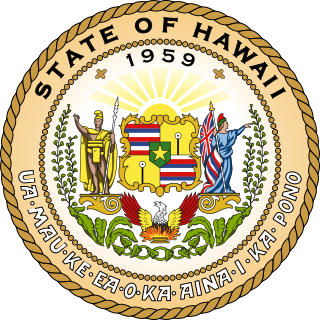
The Hawaii Department of Law Enforcement (DLE) is a department within the executive branch of the government of the U.S. state of Hawaii. The department, which commenced operations on January 1, 2024, was created to merge several previously separate law enforcement functions among the Department of the Attorney General, Department of Transportation, and Department of Public Safety into a single department to improve efficiency.



